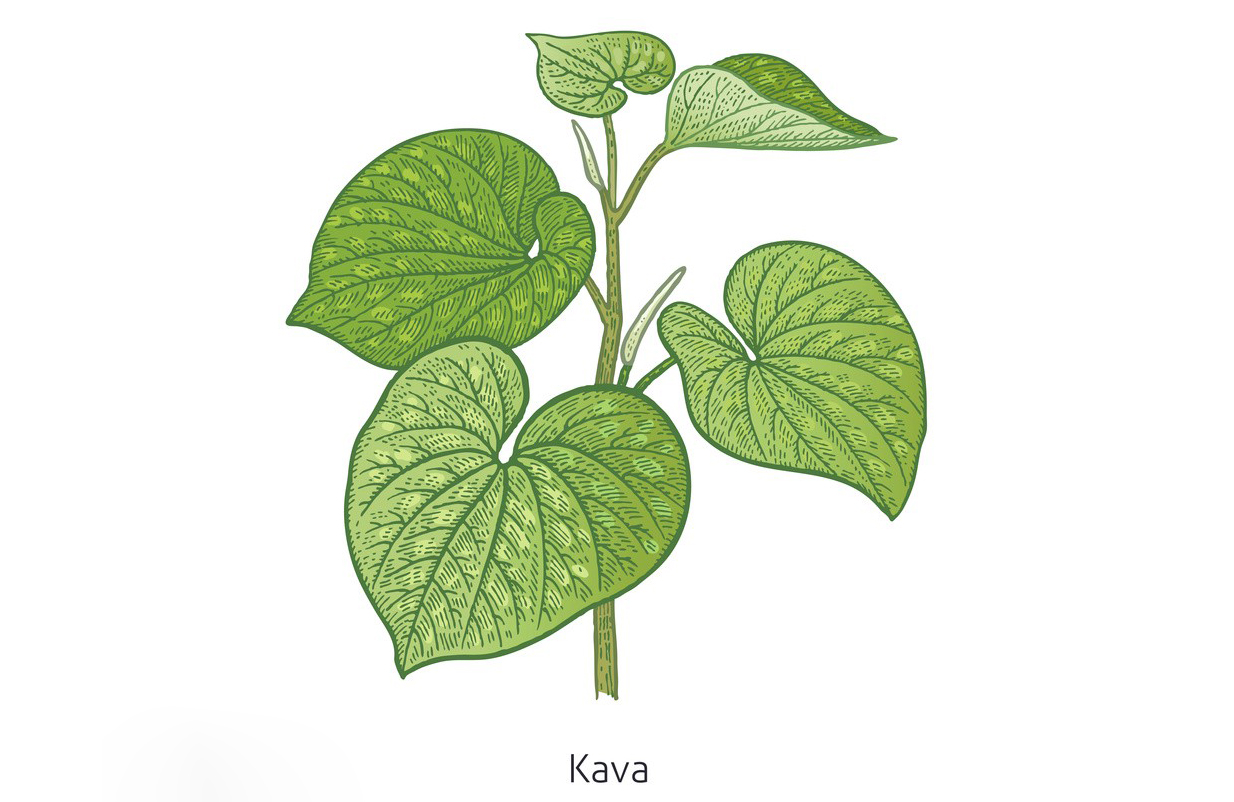Kava Extract has been used for centuries by Pacific island cultures for its calming and relaxing effects. It is often consumed in social and ceremonial contexts. Kava extract is known for its potential to alleviate anxiety, stress, and promote relaxation without causing the same degree of cognitive impairment as some other substances.
Here’s a comprehensive overview of kava extract based on research available up until September 2021:
Chemical Composition:
Kava extract contains a group of active compounds called kavalactones, which are primarily responsible for its effects. There are over 18 different kavalactones identified in kava, with six of them considered to be the major contributors to its psychoactive effects. These major kavalactones include desmethoxyyangonin, dihydrokavain, yangonin, kavain, dihydromethysticin, and methysticin.

Effects and Benefits:
- Anxiety Reduction: Kava extract is known for its anxiolytic (anxiety-reducing) effects. It is believed to work by affecting neurotransmitter activity and binding to specific receptors in the brain, such as GABA receptors.
- Relaxation and Stress Relief: Kava extract is often used to promote relaxation and relieve stress. It can induce a state of tranquility without causing excessive sedation or impairing cognitive function.
- Sleep Improvement: Some research suggests that kava extract might have mild sedative effects, which could potentially contribute to improving sleep quality. However, more research is needed in this area.
- Muscle Relaxation: Kava’s muscle-relaxing properties are also noteworthy. It is often used to alleviate muscle tension and discomfort.
- Potential for Pain Relief: Traditional uses of kava also include its application as a remedy for pain relief.
Safety and Concerns:
- Hepatotoxicity: One of the most significant concerns associated with kava extract is its potential to cause hepatotoxicity (liver damage). Reports of liver toxicity, including cases of liver failure, have led some countries to temporarily ban or restrict kava products. However, the extent and causes of these cases are still a subject of debate, and the issue might be related to factors such as the part of the plant used, extraction methods, and individual susceptibilities.
- Interactions with Medications: Kava extract may interact with certain medications and substances, especially those that affect the liver. It’s important to consult a healthcare professional before using kava if you’re taking other medications.
- Allergic Reactions: Some individuals may experience allergic reactions to kava, including skin rashes and itching.
Research Limitations and Future Directions:
Despite kava’s long history of use and its potential benefits, the research landscape surrounding kava is complex due to concerns about its safety. The exact mechanisms of hepatotoxicity and the factors contributing to its occurrence are not fully understood. More rigorous clinical trials and studies are needed to establish the safety profile of kava extract and to identify any potential long-term effects.
Please note that my information might be outdated as my knowledge cutoff date is September 2021. There might have been new developments or research findings since then. Always consult a medical professional or trusted source for the most current information and recommendations regarding kava extract or any other herbal remedies.
